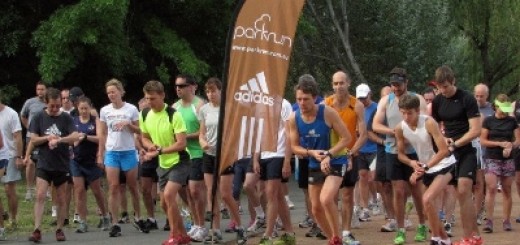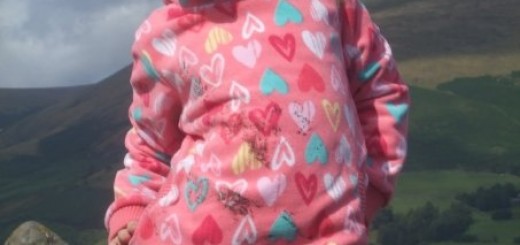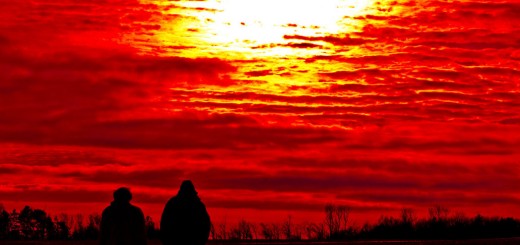When is a man a man?
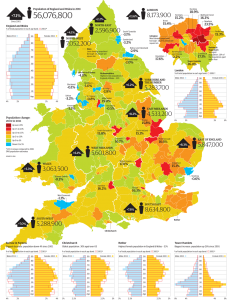 Numbers Chapter 1 describes the first ever census. According to Wikipedia, a census is the procedure of systematically acquiring and recording information about the members of a given population. Interestingly, during the Roman Republic, the census was a list that kept track of all adult males fit for military service.
Numbers Chapter 1 describes the first ever census. According to Wikipedia, a census is the procedure of systematically acquiring and recording information about the members of a given population. Interestingly, during the Roman Republic, the census was a list that kept track of all adult males fit for military service.
This is exactly how the census is used in Numbers –
Take a census of the whole Israelite community by their clans and families, listing every man by name, one by one. You and Aaron are to count according to their divisions all the men in Israel who are twenty years old or more and able to serve in the army. Numbers 1:2-3
The men are to be counted tribe by tribe – each of the 12 tribes of the sons of Jacob. One representative from each tribe is named by God to help Moses and Aaron with this count. Interestingly, Joseph’s tribe is divided into two – from his two sons, Ephraim and Manasseh. Each tribe is to be counted apart from the Levites who are set apart for a special task. They are to act as priests and take care for the tabernacle. They will never be expected to fight.
The numbers given as a result of the count are not actual numbers. They are described in ‘The New Bible Commentary Revised’ as needing to be understood in the military sense. The word ‘thousands’ comes from ‘elep’ which also is translated as clan or military unit.
What is of real interest to me in this chapter is this question – when is a man a man? I have always thought that in ancient times, men married younger and were expected to grow up sooner and become a man and fight at an earlier age. The men to be counted here, however, are ‘twenty years old or more’. This is evidently the age at which God felt a man was a man, ready to fight and defend his people.
It is strange how different societies around the world in the present day consider boys to have entered adulthood at a whole range of ages. Even in the UK, there is confusion – adulthood used to be reached at 21, then we celebrated 18. There are some things a young person is legally allowed to do at 16, 17 and 18. And then in the States, it is still 21 for drinking alcohol and yet 16 for driving. All very weird.
We know from our own experience that children mature at different ages. In my experience, 19 seemed to be the age where my boys emerged from most of their immaturities and into a better relationship with us as parents. They seemed to both relax into their own identities at 19 (even though they are very different individuals) and not feel the need to rebel and fight against us any more. This also coincided with them leaving home for university however, so it’s hard to say how much was to do with actual age and how much to do with distance and independence.
 Kids feel that they are an adult these days from the age of 12 in my experience! They are encouraged to ‘think for themselves’, ‘be more independent’, ‘be their own person’. I do agree to a point, but in my opinion, children are not allowed to stay children for long in our society. Look at Year 6 proms for example – where girls are expected to act and dress like mini 16 year olds with the false tan and nails and professionally created hairstyles. Actually what really shocked me at the Year 6 Prom was the bar serving kids with shots of coke and the kids lining them up on the bar and downing them in one. It was disturbing to watch.
Kids feel that they are an adult these days from the age of 12 in my experience! They are encouraged to ‘think for themselves’, ‘be more independent’, ‘be their own person’. I do agree to a point, but in my opinion, children are not allowed to stay children for long in our society. Look at Year 6 proms for example – where girls are expected to act and dress like mini 16 year olds with the false tan and nails and professionally created hairstyles. Actually what really shocked me at the Year 6 Prom was the bar serving kids with shots of coke and the kids lining them up on the bar and downing them in one. It was disturbing to watch.
If we have a child who is slower to mature and not ready to hang around the shopping centre at 13 (like I do), then we worry that they are babyish and not growing up fast enough and being left behind. We as parents have to be careful not to compare, I think, and need to let our kids mature in their own time and not push them or drag them into adulthood before they are ready. We need to find opportunities for them to still be kids. I go swimming with my daughter once a week at the gym and it is a lovely time to bond and relax into each other’s company. We play games int the pool. We see who can do the best handstand and somersault under the water (clearly it’s me). I get ice from the steam room and put it down her back and she howls with laughter. We massage each other’s feet in the jacuzzi. She is free to be a child again with none of her peers watching her or judging her. We put aside any of the week’s quarrels and start over. It is good.
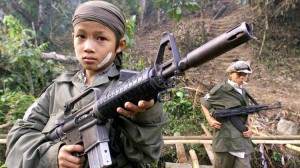 All over the world, though, there are kids that can’t be kids. Kids who have had their childhood stolen. Orphaned children my daughter’s age who are left with a whole family of siblings to care for and bring up. Children living alone on the streets having to fend for themselves. Young girls forced into prostitution. Children working long hours in dangerous conditions for little or no pay in sweat shops or on cocoa plantations (for our cheap fashion and chocolate). Boys as young as seven or eight forced to pick up weapons and fight as child soldiers.
All over the world, though, there are kids that can’t be kids. Kids who have had their childhood stolen. Orphaned children my daughter’s age who are left with a whole family of siblings to care for and bring up. Children living alone on the streets having to fend for themselves. Young girls forced into prostitution. Children working long hours in dangerous conditions for little or no pay in sweat shops or on cocoa plantations (for our cheap fashion and chocolate). Boys as young as seven or eight forced to pick up weapons and fight as child soldiers.
All of this is wrong. Childhood is precious and needs to be protected. There are amazing individuals and organisations working to restore childhoods all over the world. We need to protect the childhood of our own children, yes, but also have compassion for children all over the world.
Do some research. Find a work amongst children that you would like to support. Not just inspired by Pudsey Bear and Children in Need (which is great, of course), but something more long term…..for example, we pay the salary of a play leader at the Cure Hospital in Malawi, which I visited 6 years ago. Many of the children I met had never seen a toy or a book before. We played with a balloon and the delight on the children’s faces was beautiful. This play leader plays with the children and sings with them at a time when they are scared of the operation that they are about to go through or rehabilitating after the op.
Anyway, reflect on childhood for a moment today. Childhood is precious and needs to be protected.
